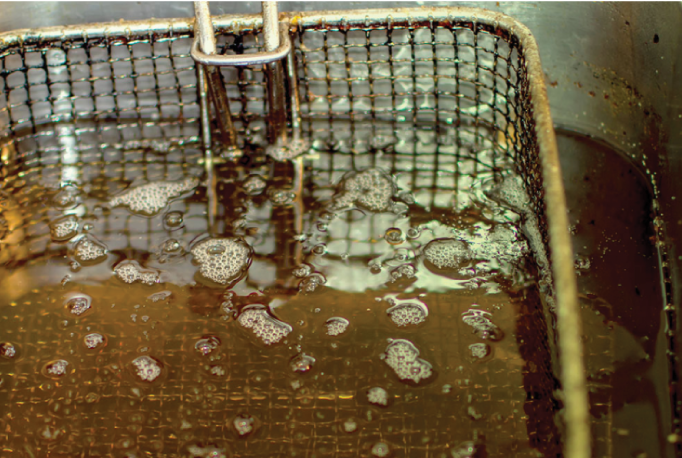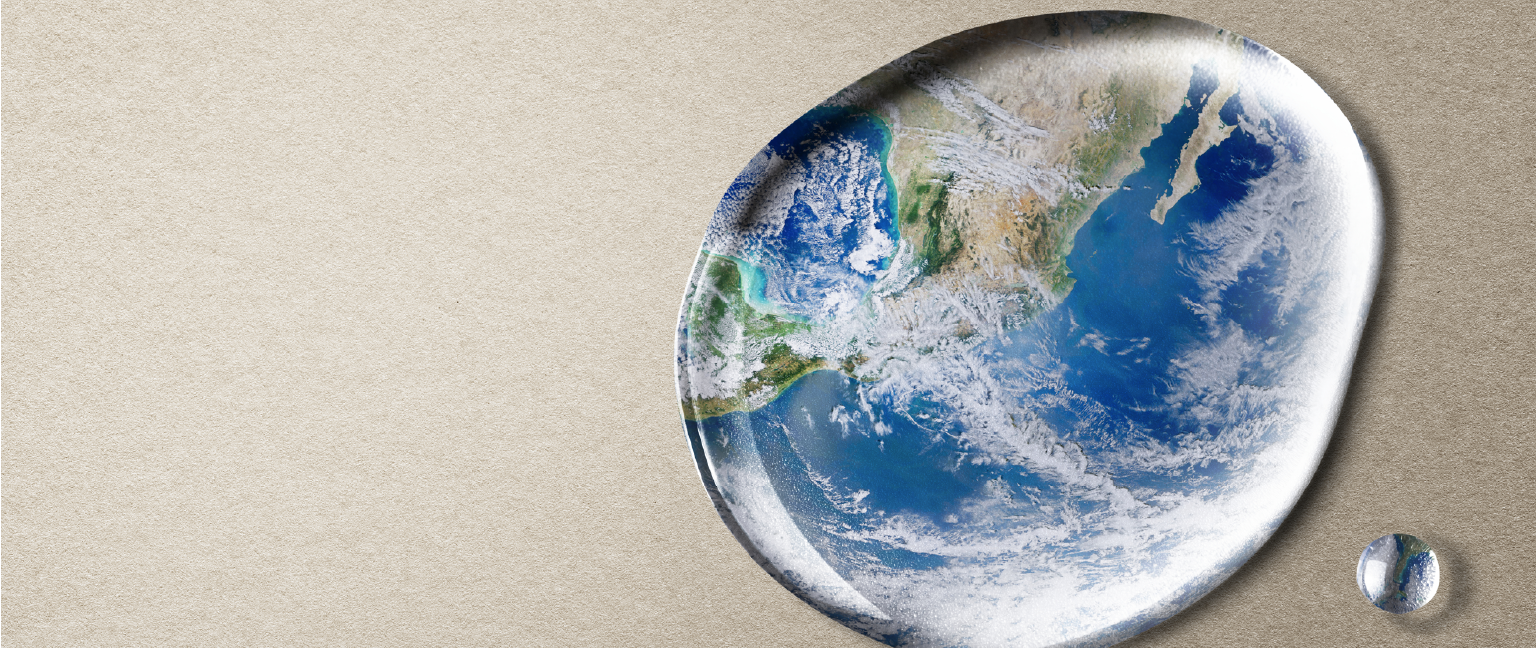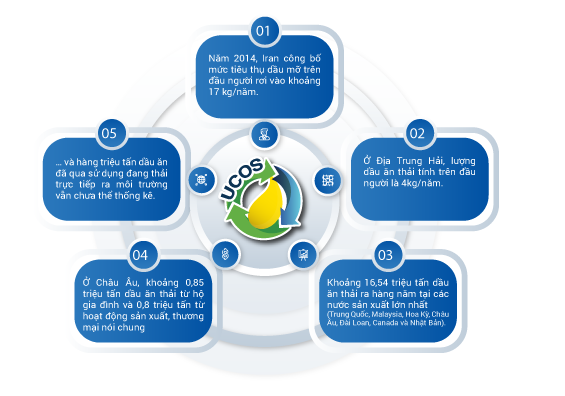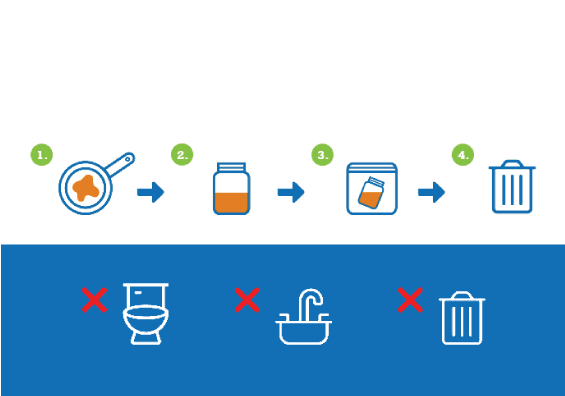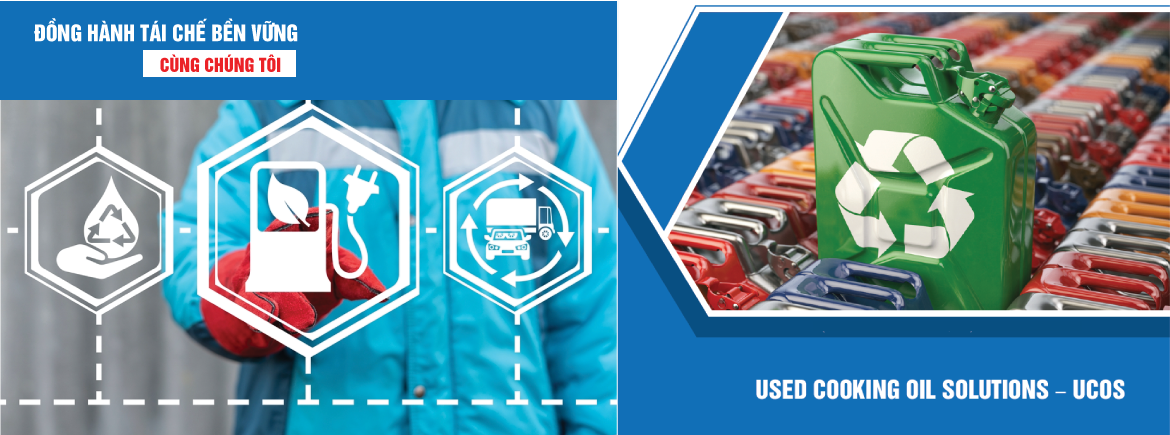
Used cooking oil: identification, recovery and recycling solution to transform into "green fuel" in Vietnam
A Chau Environment provides sustainable solutions in the chain of recovery - collection - transportation - recycling of used cooking oil into alternative fuels - biodiesel,...
Introduction
Used cooking oil's impacts on the human health and environment?
For human health
When frying oil and fat at high temperatures (usually above 180 degrees Celsius), chemical reactions occur, producing aldehydes, oxidizing agents and a carcinogen called benzopyrene... are extremely harmful to health.
The more times you cook at a higher temperature (for example, letting oil ignite in a pan), the more toxic substances are produced. Among the toxic substances are those that evaporate into the air, causing air pollution. It is also toxic to those who inhale it. Some substances settle into oil,fat and seep into food, causing serious harm to humans health.
When you consume toxic substances found in this oil and fat, you may experience the following symptoms: dizziness, nausea or vomiting, abdominal pain, shortness of breath, slow heart rate, high blood pressure, fatigue, eating a lot for a long time may have cancer.
(Excerpt from a research source of the Institute of Nutrition)
Impact on drainage system and environment:
Impact on equipment, drainage system
Although it may look like liquid going down the drain when pouring used cooking oil directly into the sink or drain. When they are cool, they solidify, form plaque and accumulate, causing pipe blockage, affecting the drainage system and cause pipe cleaning to become expensive and unsanitary. In the United States, about 47% of sanitary sewer overflows are caused by accumulated fats and oils each year.
Impact on the environment
Water sources pollution: When used cooking oil is dumped into the water, it floats to the surface and causes oil-contaminated water. They then disrupt the gas exchange process and kill organisms, animals, and plants living in and on the water's surface, affecting the water supply for daily use.
Soil pollution: cooking oil seeps into the soil and leaks into groundwater, allowing harmful microorganisms to grow, causing odors and soil pollution.
The worldwide process for used cooking oil management is recommended: "green fuel journey"
1. Cooking oil will be stored in bottles/containers with screw caps after it has been cooled and is no longer usable.
2. The truck for used cooking oil collection will transport it to a recycling facility
3. At the factory, used cooking oil will be recycled into biodiesel
4. Biodiesel is distributed as a "green" fuel source for vehicles, replacing fossil fuels
Instructions for handling of used cooking oil at home
1. Do not pour used cooking oil directly into the garbage bin or down the sink, toilet, drain, or soil,…
2. Store used cooking oil in empty bottles/jars with lids until full, then put it in domestic waste bin.
3. If the amount of used cooking oil is insufficient, blot it with a tissue before putting it in domestic waste bin.
Let’s participate in sustainable recycling with us
For used cooking oil, A Chau Environment is looking for partners to provide sustainable recycling solutions in the chain of recovery - collection - transportation - recycling into alternative fuels.
In the coming period, A Chau Environment wants to continue working with the community and accompanying businesses, agencies, organizations, individuals,... and environmental projects in general and sustainable recycling activities in particular.
Our regional Customer & Partner services center in Vietnam:
Northern Services Center: 033 8351122
Central Services Center: 0902 450585
HCMC – Eastern Services Center: 033 8351122
Southern Services Center: 0902 912586



